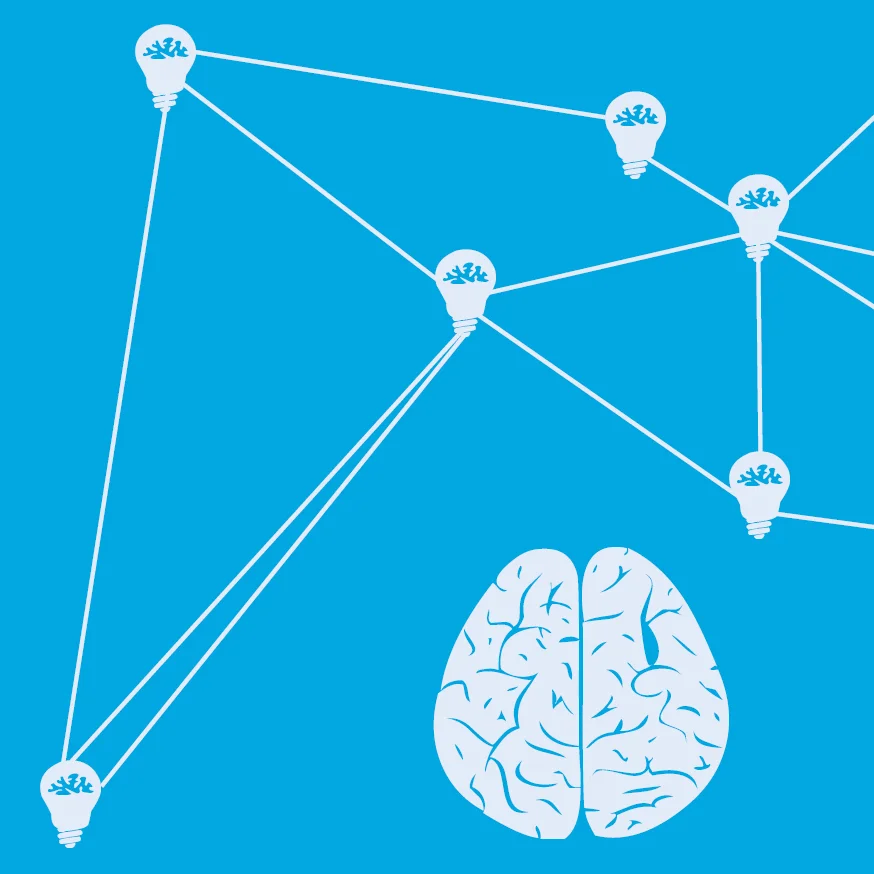With the outcome of the recent federal election, the Coalition’s ‘pre-employment’ program known as ParentsNext looks set to continue indefinitely. While a recent Senate Inquiry found the program to be deeply flawed and often harmful to participants, the program is not without its defenders. In today’s piece, Ella Buckland (@EllaNBuckland), who has become a strong advocate for women who are enrolled and is leading a petition to have the program made voluntary, writes about her own experiences and those of other mothers who are on the program in an effort to set the record straight on the program’s merits.
Read MoreIt’s a term widely used by politicians, educators, and the media in the UK to describe Black, Asian and Minority Ethnic groups – but we need to be wary of using ‘BAME’, especially within a public health context. Dr Sandhya Duggal draws on her doctoral research to reflect on some of the key issues associated with the term ‘BAME’, with reference to the Indian Punajabi community. Her work highlights two key recommendations – the importance of recognising heterogeneity and multi-generational differences – something ‘BAME’ fails to acknowledge.
Read MoreDogs have traditionally assisted humans and their supportive roles continue to evolve and diversify. There are now courtroom facility dogs (Kaiser 2015) and even funeral therapy dogs, offering ‘love and support to the bereaved’ (Snead, 2018). More than half of Canadian universities implement dog therapies during examination periods as a means of reducing stress (Dell, et al., 2015). We are beginning to see this strategy introduced to UK universities. In 2018, the University of Birmingham’s School of Education offered dog therapy to their alumni teachers as a possible remedy for alleviating stress. In the second of her two guest posts this week on Power to Persuade, Dr Alison Broad the Director of Primary Initial Teacher Education examines why some schools have a dog on their staff.
Read MoreThe role of animals in supporting mental health and emotional wellbeing is probably not a modern phenomenon. Myers (1998) draws our attention to the book ‘De Canibus Britannicus’, written in the sixteenth century by Dr Cairs in which he advocated the therapeutic use of dogs and recommended that a person afflicted by illness should carry a small dog on their bosom to soak up the disease. In 1699 John Locke prescribed giving children small animals, including dogs, birds or even squirrels, to look after, in order to foster the development of ‘tender feelings and responsibility for others’ (Garforth, 1964, p.154). The assumption was that this would help children to control their innately ‘beast like’ characteristics (Myers, 1998). In the first of her two guest posts this week on Power to Persuade, Dr Alison Broad the Director of Primary Initial Teacher Education examines the question – can animal assisted therapies help to tackle the issues of wellbeing and mental health?
Read MoreMaiy Azize explains the important lessons of Anglicare Australia ‘s recent study of attitudes towards welfare and poverty for how anti-poverty advocates can use language effectively. Boldly stating our support for all people in poverty, as well as focussing on their strength and resilience are two key recommendations.
Read MoreIn the wake of the election results, Millie Rooney (Australia reMADE) describes how a united and inspiring vision for what Australia could be can help us work together across and around difference to create ‘the best version of us’.
Read MoreMaiy Azize of Anglicare Australia explains how her recent study of social attitudes shows that Australians are surprisingly empathetic towards people in poverty - and how anti-poverty advocates can campaign and win.
Read MorePost-Christchurch, our leaders must reinvigorate their responses to radicalisation in our communities. Deb Cleland and Valerie Braithwaite (ANU) introduce the RAMP framework for behaviour change to help understand community organisations’ responses to radicalisation. The RAMP framework suggests that behaviour change can be facilitated by: Rewards, Awareness, Motivation and Pathways.
Read MoreDespite being our largest and most complex social policy reform, the NDIS didn’t receive much attention in the recent election campaign until its close. We could read something into this about how political parties think the NDIS plays with the electorate, but irrespective of political perceptions and prioritising the fact remains that the NDIS affects the lives of not just its 460 000 participants, but their families, carers, and more than 35 00 workers.
Read MoreThere has been much lament over the discarding of Australia’s Women’s Budget Statement as part of the budgeting process, and reinstating this process was one of Labor’s promises should they have won the election. While this is an absolutely critical document, there is an upstream problem that also needs addressing - data collection. The data which is collected and analysed is often itself subject to gender bias, resulting in huge gaps in our understanding of how policies effect women.
Today’s analysis looks at the problem of women’s invisibility in data sets using the example of transportation policy. Transport policy researcher Nicole Badstuber (@NicoleBadstuber) has written an explosive piece that resonated strongly with readers in the U.K. but also hit a nerve with Australians, as evidenced by a viral tweet on the piece from Per Capita’s Abigail Lewis. This piece originally appeared in London Reconnections and can be viewed in its original format here.
Read MoreThis article from Dr Simone Casey explores why Australia’s Mutual Obligation requirements are so demanding and whether this is based on evidence about what works. It asks why critical research evidence has not received more attention from Australia ‘s activation policy makers. She argues that lack of engagement with critical social research is a limitation which hampers social justice efforts and reflects disregard for social suffering, and says there is plenty of room for stronger engagement with participatory policy design approaches. Dr Casey is an Associate of the RMIT Future Social Services Institute.
Read MoreSince inception, the 2030 Agenda for Sustainable Development recognised reducing violence against women as a global goal. Yet, it’s difficult to see how Australia can meet the goal without significantly greater investment in the prevention of violence against women. Today’s original blog post is contributed by Kara Beavis (@KarsyBee). Kara is enrolled in a Ph.D. at Queensland University of Technology (QUT) entitled: Lessons from Norway: Influencing the Political Economy for the Prevention of Violence Against Women. Apart from working previously as a “femocrat” within women’s policy units in NSW and Queensland, she presently juggles teaching duties with research and advocacy for gender equality.
Read MoreThe Coalition government has had a long-term focus on moving women into paid employment through increasing Welfare to Work requirements and keeping the Newstart Allowance artificially low. However, many women are unable to participate in employment due to caring duties. For some women this career break is a temporary one as children age and become less dependent, but others are looking after family members or others who have a disability or a chronic condition. In today’s piece, Melanie Zeppel (@MelanieZeppel) of GenIMPACT at Macquarie University shares findings from co-authored research on the economic analysis of the cost of caring, which overwhelmingly impacts on women.
Read MoreWith the federal election campaign in its final days, people are heading to polling booths to vote in Australia’s next government. In today’s federal election series, Policy Whisperer Susan Maury (@susanmaury) and Laura Vidal (@lauraemilyvidal), both of Good Shepherd Australia New Zealand, break down the Government and Australian Labor Party’s policies for improving women’s safety, providing both a comparison between the platforms and commentary on how the plans fall short. Today’s piece on women’s safety is the second in a two-part series from the @GoodAdvocacy team. You can read Part 1 on economic security here.
Read MoreWith the federal election campaign in its final days, people are heading to polling booths to vote in Australia’s next government. In today’s federal election piece, Policy Whisperer Susan Maury (@susanmaury) and Laura Vidal (@lauraemilyvidal), both of Good Shepherd Australia New Zealand, break down the Government and Australian Labor Party’s policies for women on improving economic security, providing both a comparison between the platforms and commentary on how the plans fall short. Today’s piece on economic security is the first in a two-part series.
Read MoreAs we are weighing in the key issues that impact our decision at the ballot box this weekend, The Australian Labour party has come out with a National Gender Equality Strategy. This is an important policy issue with very real consequences in the lives of men, women and children. As a point of contrast and moment of reflection, todays’ blog post discusses domestic violence policy in India, potentially enabling interpretation of local experiences against discourses that circulate globally regarding gender inequalities. Our contributor for today’s original blog post is Amrita Mukhopadhyay (@amyan00). Amrita is a PhD candidate in the School of Social sciences and Psychology, Western Sydney University. She completed her Master of Philosophy from Jawaharlal Nehru University, New Delhi and is a first generation migrant to Australia. Her thesis examines the relevance of the formal domestic violence legislation in the context of the socio-cultural lifestyle of a small scale business community, kesarwani community, in the metropolitan city of Kolkata, India. So basically, the ideal person to take us on this quest for interpreting local experience via global discourse.
Read MoreThe Australian Labor Party recently released a National Gender Equality Strategy, including a record $660 million commitment to end violence against women. As part of our special federal election series Labor’s Shadow Minister for Women, Deputy Leader of the Opposition, Shadow Minister for Education and Training and Member for Sydney Tanya Plibersek (@tanya_plibersek) provides an overview of Labor’s policy commitments. We extended an invitation to all of the major parties; you can read the Greens platform here.
Read MoreThe link between liveable urban environs and health inequities is the topic of today’s blog post. Dr. Hannah Badland from RMIT University, Australia and Prof. Jamie Pearce from University of Edinburgh, UK collaborate to unpack insights from their recent research work on urban liveability. Employing an environmental justice lens they note that disadvantaged neighbourhoods and their residents are likely to require additional policy and design considerations for optimising outcomes. As the aspiration of liveable cities gains popularity, this line of enquiry provides the attention necessary to understanding how urban liveability may provide an opportunity to redress health inequities. This pieces is also cross posted on CRESH and Center for Urban Research.
Read MoreImproving the policy response for people with disabilities is a critical need for women, who make up the majority of people with disabilities in Australia while also facing reduced access to services, greater rates of poverty and increased experiences of violence. In today’s federal election piece, we share an analysis of the party platforms for Liberal Party, the ALP and the Greens which was conducted by People with Disability Australia (@PWDAustralia). You can access their analysis on their website here, as well as more detailed statements on social security, employment, the NDIS and preventing violence.
Read MoreBuilding knowledge and capacity for policy change is the vision of Power to Persuade. But policy work is difficult, time consuming, on-going, hidden and often with limited success. Burn out in this space is quite common and therefore it is necessary to remind ourselves that self-care and mental wellbeing can also be considered par for course of policy change! This week’s blog posts will begin with reflections from a social policy researcher, Isabella Saunders, based at the Centre for Social Impact, UNSW. Using her experience of an extended road trip around Australia, she provides life hacks to ‘break free from the metaphorical prison that is “routine”.’ Isabella’s has expertise in qualitative and mixed-methods research experience in the fields of employment, young people and disability, both in Australia and overseas. This piece was originally published on the Croakey website on 30th April 2019.
Read More

















